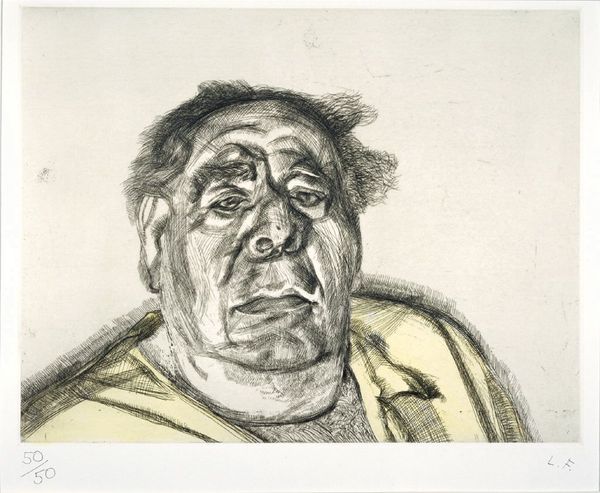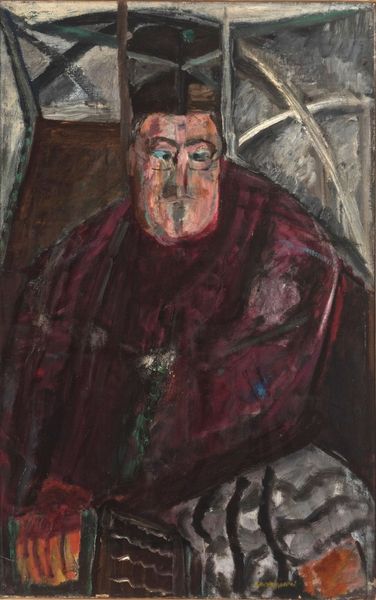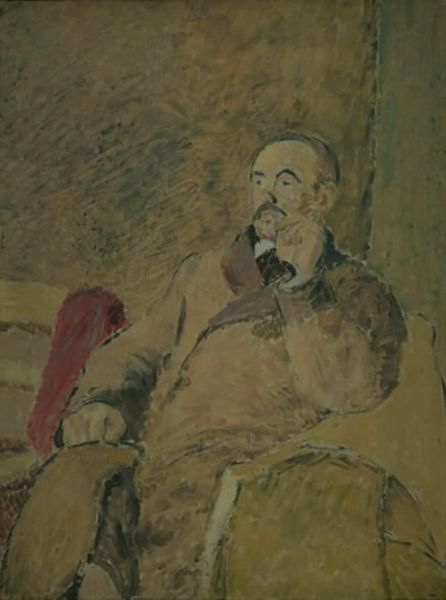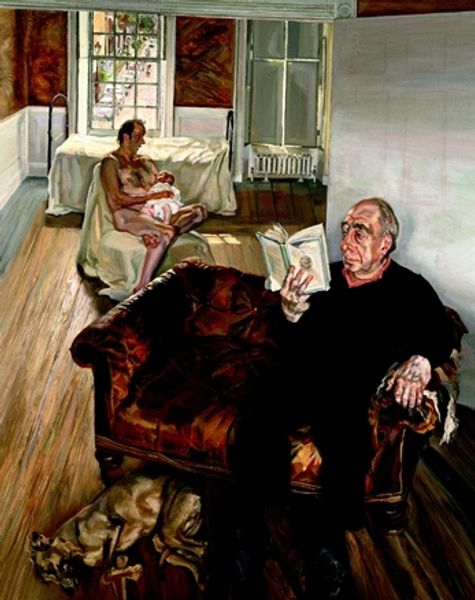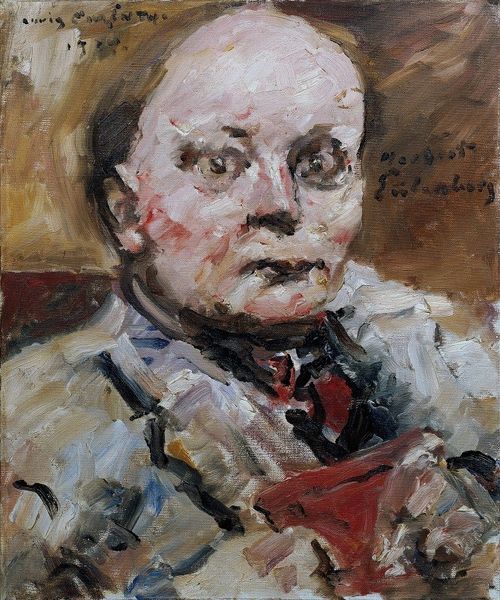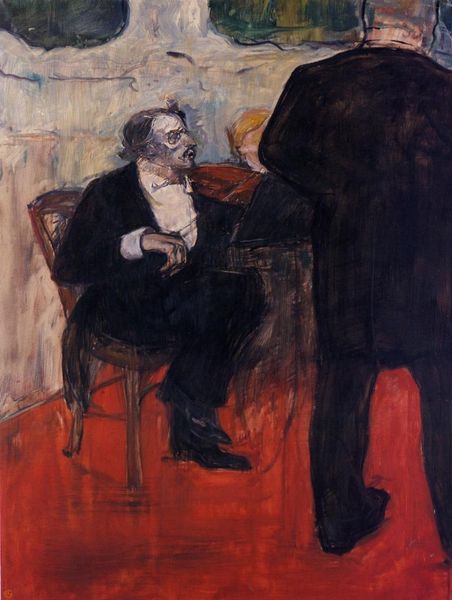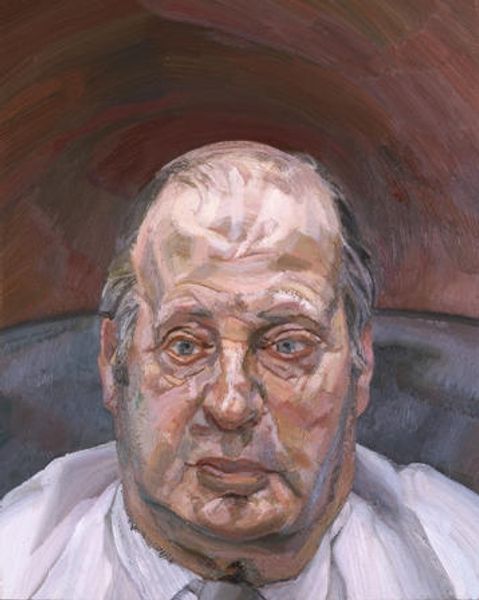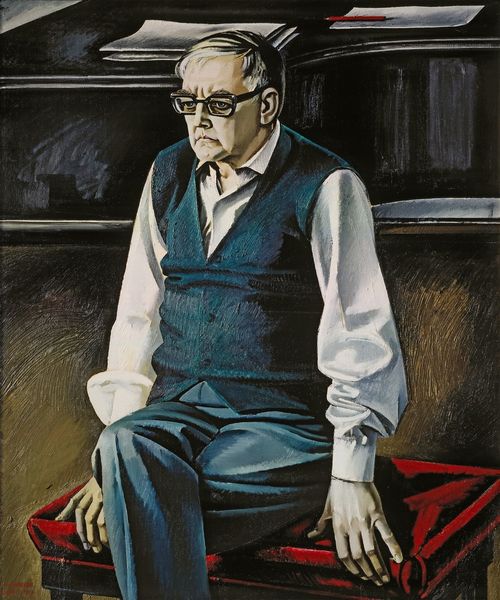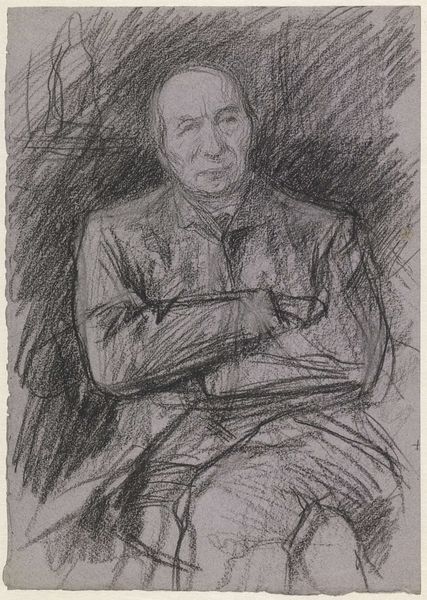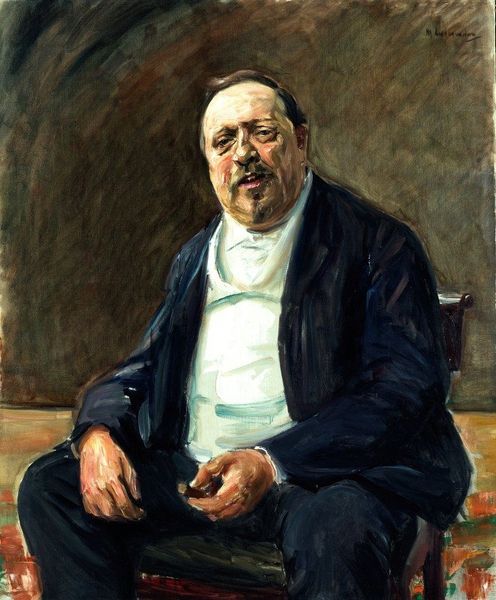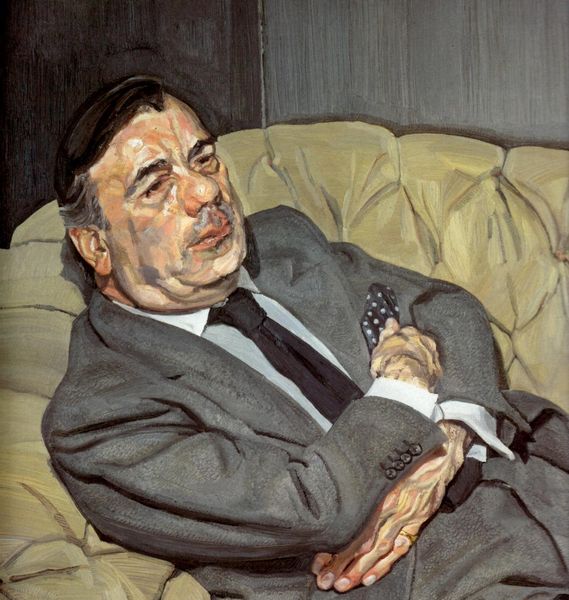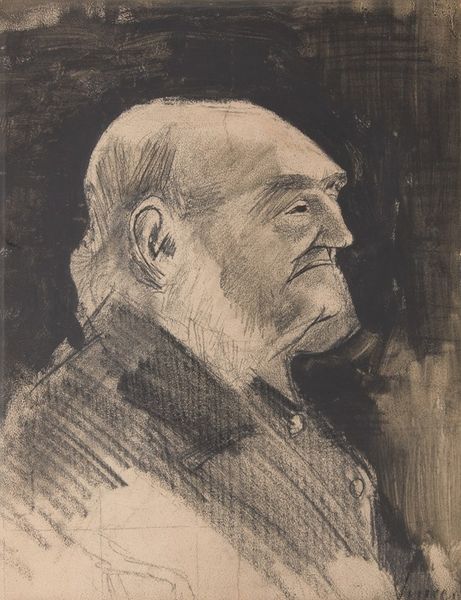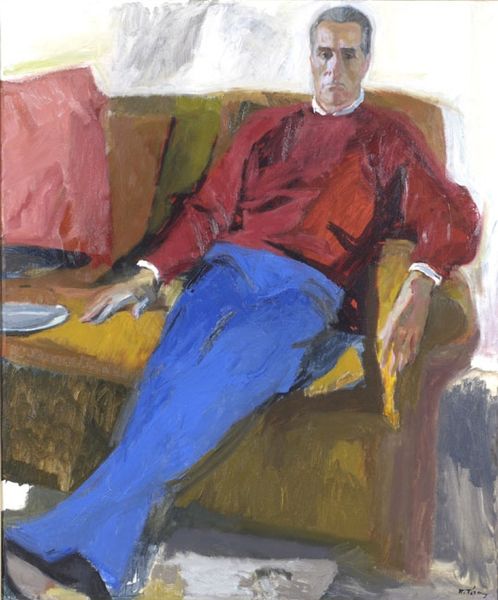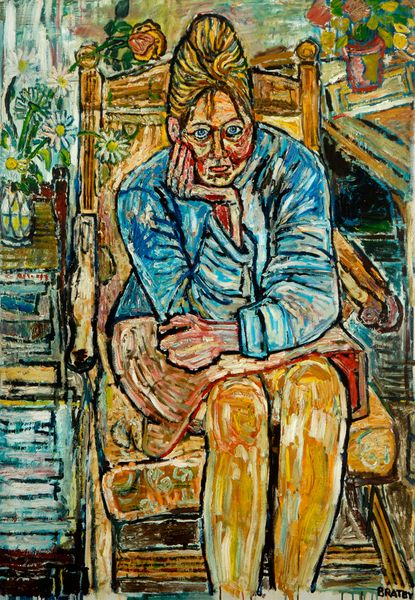
Dimensions: support: 959 x 959 mm
Copyright: © The estate of Graham Sutherland | CC-BY-NC-ND 4.0 DEED, Photo: Tate
Editor: This is Graham Sutherland’s portrait of Lord Goodman, held at the Tate. The materiality of the paint seems to emphasize the sitter's physical presence. What do you make of the way the artist worked with his medium here? Curator: Notice how the brushstrokes articulate not just form but also the very act of applying paint. The subject's imposing figure becomes a site where labor, representation, and even the consumption of materials meet. Editor: So, you're saying the painting itself highlights the process of its own creation? Curator: Exactly. We're invited to consider the choices, the hand of the artist, and the material reality underpinning the image. Editor: That's a great point; it makes me look at it in a completely new way.
Comments
tate 10 months ago
⋮
http://www.tate.org.uk/art/artworks/sutherland-lord-goodman-t01880
Join the conversation
Join millions of artists and users on Artera today and experience the ultimate creative platform.
tate 10 months ago
⋮
At his death, Arnold Goodman was described as 'for many years... Britain's most distinguished citizen outside government'. As a lawyer, his work on high-profile libel cases drew him into the affairs of state. In 1965 he was appointed chairman of the Arts Council and made a life peer. This portrait was painted over at least two series of sittings, at Sutherland's house in the South of France. At this late stage in his career, Sutherland was applying paint with great fluency, but extremely thinly, over his characteristic grid of pencil lines. Gallery label, August 2004
